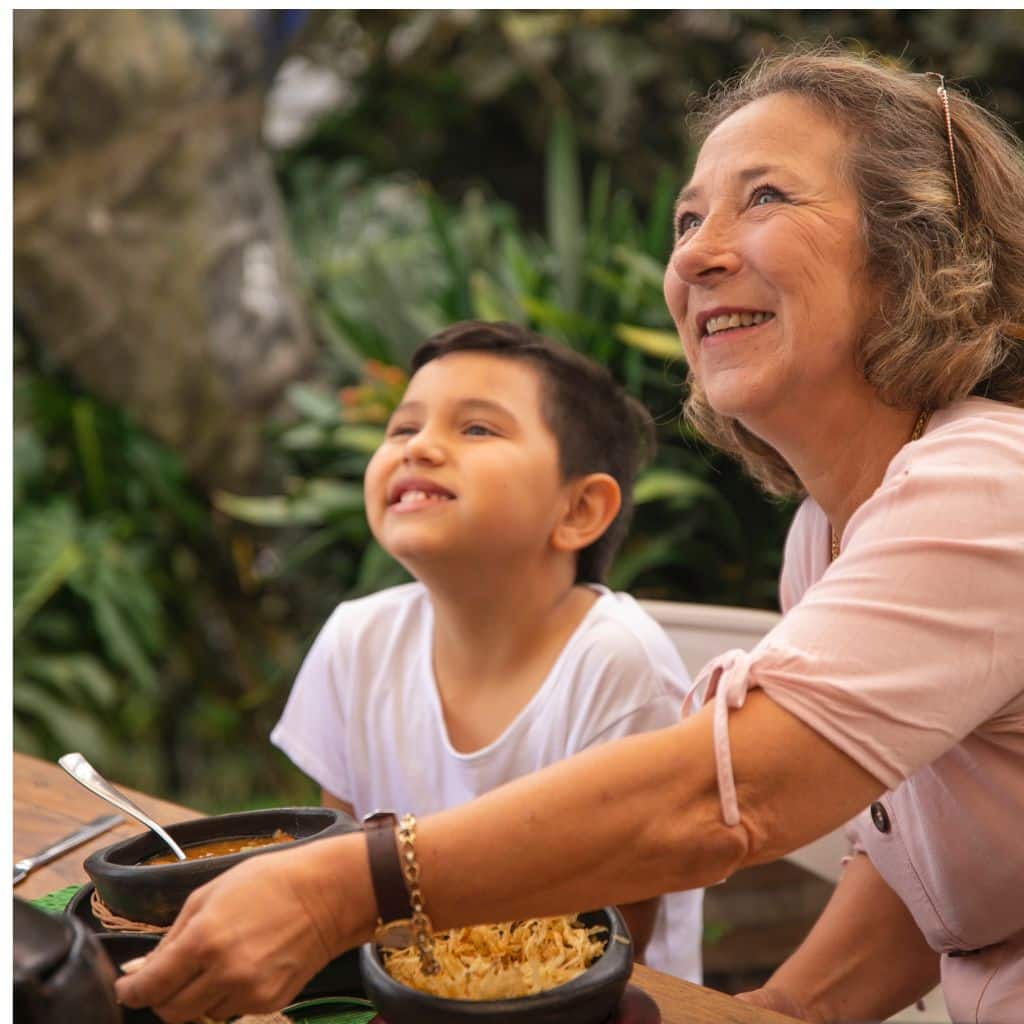Do you need help understanding your legal rights and options as a grandparent in Queensland? Our compassionate and highly experienced team are here to provide support and guidance.
Best Interests Outcomes
We understand the importance of maintaining a child’s relationship with their grandparents and strive to achieve balanced and respectful outcomes that benefit both the child and the family.
Experienced Guidance
Our skilled team assists with all aspects of grandparent’s rights, including complex family dynamics, safety concerns and securing visitation or care orders.
Transparent & Affordable
We provide expert legal advice or representation, if necessary, with a clear and reasonable fee structure to support your needs without unnecessary costs.

Our team specialises in providing clear guidance on your rights and entitlements, ensuring you receive tailored advice and support to protect your role as a grandparent in your grandchildren’s lives.
Do you need legal assistance to maintain visitation or address safety concerns related to your grandchildren?
We understand how upsetting it can be to maintain a strong relationship with your grandkids after a family breakdown or dispute. We also know there are times when your grandchildren may need supportive family members to step in on their behalf to ensure their safety is prioritised.
If you are facing either of these situations or have other legal questions regarding your role as a grandparent, please contact us for a free, confidential discussion.

“Thank you to the team at Advance Family Law for guiding me through a very traumatic time and giving me direction and more fundamentally, hope, that not only would my interests be protected but that the outcome achieved would be fair, reasonable and equitable, which it was.”
– J.M

Support, Advice & Representation
Support and care from close relatives like grandparents, aunts, and uncles can be of great comfort to children, especially during difficult times like when their parents are going through a separation or divorce.
Unfortunately, during family breakdowns, we often see disputes arise over a grandparent’s ability to continue having meaningful relationships or contact with their grandkids. Our team is here to provide clear advice and ensure you fully understand your legal options.




Step 1. Book A Free 15 Minute Consultation
Simply get in touch and we’ll organise a free 15 minute telephone consultation.
Step 2. Understand Your Options
We’ll ensure you know what your options are and can make informed legal decisions.
Step 3. Move Forward With Your Life
Our team will help you resolve your matter so you can focus on moving forward with your life.
Book in a Free 15 Minute Consultation & speak with one of our team members.
WHY US?
Absolutely. The Family Law Act 1975 makes the best interests of a child paramount in all decision-making. Positive relationships with grandparents, close family members, extended family, and other significant people are all considered important factors in meeting the child’s needs.
However, there is no automatic right for a grandparent to see their child in Australia or to have any parental rights if a parent decides not to encourage or facilitate a relationship with another family member. However, there are several legal options and avenues to address this, most of which do not need to be heard in a family law court unless there are urgent matters relating to a child’s safety or well-being. This is why knowing your rights is so important, as is understanding what they mean when weighed against the needs of the children involved and the decisions made by their parents.
This will depend on the nature of your family law matter. A grandparent has a legal right to:
One consideration the Court will generally take into account in making Orders for the care and living arrangements of children is the importance of maintaining a relationship not only with each parent but also with other family members, including grandparents. If you are a grandparent and any of the above issues apply to you, we can assist you with support and advice about the best course of action moving forward.

If your adult child or their partner has mental health or drug issues, we are not here to point fingers and blame. Our Family Lawyer’s role is to provide advice on the evidence required to ensure your grandchild is safe and cared for. If domestic violence or child protection is an issue, we will provide clear and timely support to assist you with ensuring the well-being of your grandchild.
You and your adult child may share different views on subjects, but differences in opinions should not deprive a child of having a positive relationship with significant family members. A child has rights, and it is the parent’s responsibility to ensure these rights are met, even if family members don’t always see eye to eye. Organising mediation, or FDR, is an excellent first step to resolving disputes. Unless you have immediate safety concerns or a child is at risk, applying to a court for orders is generally a last resort.
Grandparents can apply for visitation or other rights when:
It’s wonderful to be able to offer your children support in raising them, and in relationships where a positive dynamic exists, this often happens naturally. However, family disputes, which may sometimes be petty or complex, can prevent a child from having a close connection to their grandparents.
If you’re interested in supporting your child in raising their own child but have encountered communication challenges or need assistance resolving an issue, legal options like mediation can help. Mediation provides a constructive way to address concerns and develop a plan that benefits everyone involved, ensuring the well-being of all parties.

One of the most critical aspects of the discussion around the rights and responsibilities of a family unit in Australia is not whether grandparents have rights or parents have rights – it’s about a child’s right to have a life in which they are provided for, cared for, and able to maintain connections with those who are important to them, where it is safe to do so.
Children’s best interests should always be the guiding force for decisions made on their behalf, whether through family discussions or court intervention, which should always be a last resort. As family lawyers, we work with many types of families who have a range of issues and disputes that may arise.
It’s essential to get some legal advice about your situation and how the best interests of the children can be met in a way that is as amicable and effective as possible.
Under the Family Law Act 1975, grandparent’s rights in Australia are recognised, but they are not a given if the child’s parent does not wish for contact to occur. While parents have primary responsibility for their child’s care and decision-making, grandparents are considered important extended family members who can play a vital role in a child’s life, particularly during family separation or divorce.
Australian family law acknowledges the significance of maintaining a meaningful relationship between children and their grandparents, even when a child’s parents separate or face difficulties. If legal matters arise, parental responsibilities and rights and grandparent rights will always be viewed in light of the best interest of the child.
Under Section 65C of the Family Law Act 1975, the following individuals may apply for a parenting order:
This allows grandparents and others with a significant role in the child’s life to seek legal orders related to the child’s care and well-being.
The Federal Circuit and Family Court of Australia handle parenting matters and disputes concerning children’s care arrangements. They assess what is in the child’s best interests and can make parenting orders regarding the child’s care, including granting visitation rights to grandparents.
Grandparents can apply for parenting orders, but they must first try mediation unless exceptions such as family violence apply. Court orders are always made with the best interests of the child in mind, reflecting both legal rights and the child’s needs.

Applying for visitation or care as biological and non-biological grandparents or extended family members requires going through a legal process that involves both family mediation and potential court proceedings. It is essential to approach the application with a clear focus on the child’s best interests and make decisions based on the urgency of the matter.
Australian family law requires that grandparents attend Family Dispute Resolution (FDR) to attempt to resolve the issue amicably before making a court application unless a matter is urgent. This process involves a neutral mediator helping all parties reach an agreement about care and visitation arrangements. In most cases, a Section 60I Certificate from a family dispute resolution practitioner is required to file a court application.
If mediation is unsuccessful, grandparents can apply to the Federal Circuit and Family Court of Australia for a parenting order. This formal application outlines the desired care arrangements and visitation rights. The court will assess the grandparent’s role in the child’s life and whether granting visitation or other orders will contribute positively to the child’s well-being.
During the court hearing, both parties present evidence, and the court assesses the situation based on the child’s best interests. The court’s decision will consider factors such as the nature of the relationship between the child and grandparent, the child’s wishes, and parental objections.

Grandparents can seek legal advice to understand their rights and navigate the legal process. Engaging a family law firm or a family law specialist can often provide the legal support you require to initiate legal action. Additionally, community services like Legal Aid Queensland offer financial assistance and mediation support. Grandparents may also benefit from family dispute resolution to create a parenting plan or agreements on custody arrangements.
When determining grandparent’s rights, the court considers several factors, including the grandparent’s close relationship with the child, the child’s views (if of appropriate age), and any parental objections. The child’s circumstances and best interests remain the priority. If safety concerns arise, the court will prioritise these in making custody or parenting arrangements decisions.